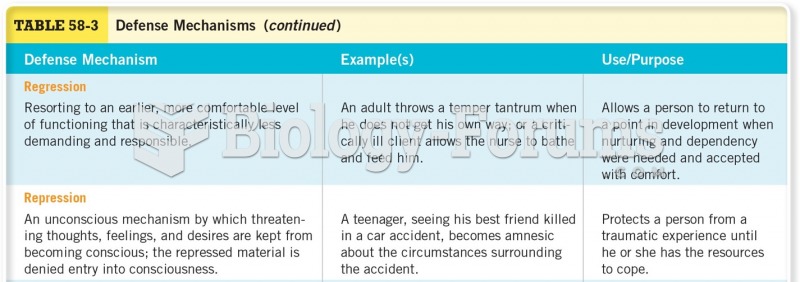This topic contains a solution. Click here to go to the answer
|
|
|
Did you know?
Medication errors are three times higher among children and infants than with adults.
Did you know?
Never take aspirin without food because it is likely to irritate your stomach. Never give aspirin to children under age 12. Overdoses of aspirin have the potential to cause deafness.
Did you know?
Approximately 70% of expectant mothers report experiencing some symptoms of morning sickness during the first trimester of pregnancy.
Did you know?
The U.S. Preventive Services Task Force recommends that all women age 65 years of age or older should be screened with bone densitometry.
Did you know?
There are 20 feet of blood vessels in each square inch of human skin.







